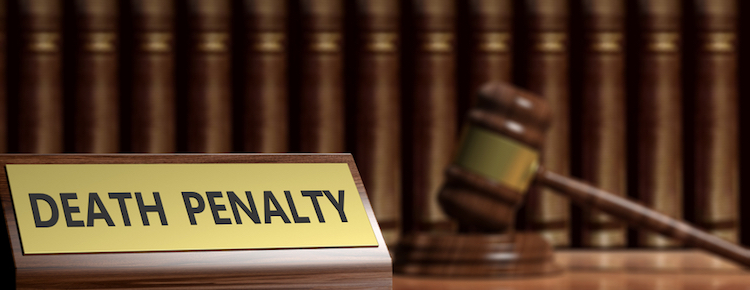DC Circuit allows federal executions to proceed, with Trump appointees in majority

Image from Shutterstock.com.
The U.S. Court of Appeals for the District of Columbia Circuit lifted an injunction Tuesday that had prevented the federal government from carrying out executions of four inmates during a review of a new lethal injection procedure.
The court lifted the injunction in a 2-1 decision, with judges appointed by President Donald Trump in the majority.
At issue was whether the U.S. Department of Justice’s plan to use a single execution drug—pentobarbital—conflicts with the Federal Death Penalty Act. The law requires federal executions to be implemented “in the manner prescribed by the law of the state in which the sentence is imposed.”
Despite their agreement on lifting the injunction, the two judges in the majority—Gregory Katsas and Neomi Rao—split on what “manner” means.
Katsas concluded that the federal law requires the federal government to use the same “top-line choice among execution methods” used by states, such as the choice to use lethal injection instead of hanging or electrocution.
Rao concluded that the law requires the federal government to follow execution procedures in state statutes and regulations. She viewed the federal government’s protocol as nonbinding, however, which would allow for a “carveout” to conform to state law when there are differences.
Dissenting Judge David Tatel said the federal protocol makes no mention of a carveout to allow conformity with state law. Because the single-drug protocol does not take account of state procedures, it violates the Federal Death Penalty Act, Tatel said. Tatel was appointed by President Bill Clinton.
The court ruled in an appeal by death-row inmates Daniel Lee, Wesley Purkey, Alfred Bourgeois and Dustin Honken.
Ruling in November 2019, U.S. District Judge Tanya Chutkan had blocked the four executions pending a review of the single-drug procedure.
The U.S. Supreme Court refused to lift Chutkan’s injunction in December 2019 but said it expected that the D.C. Circuit would issue a decision “with appropriate dispatch.”
Cate Stetson, a partner at Hogan Lovells who represents one of the plaintiffs, said in a statement that the injunction was intended to ensure that the death penalty is imposed lawfully.
“Without action by the full court, the panel’s splintered decision will allow the government to execute prisoners even while serious questions remain unanswered about the legality of the government’s execution procedures under federal law,” Stetson said. “As Judge Tatel wrote in his dissenting opinion, ‘Had Congress intended to authorize the attorney general to adopt a uniform execution protocol, it knew exactly how to do so.’”



